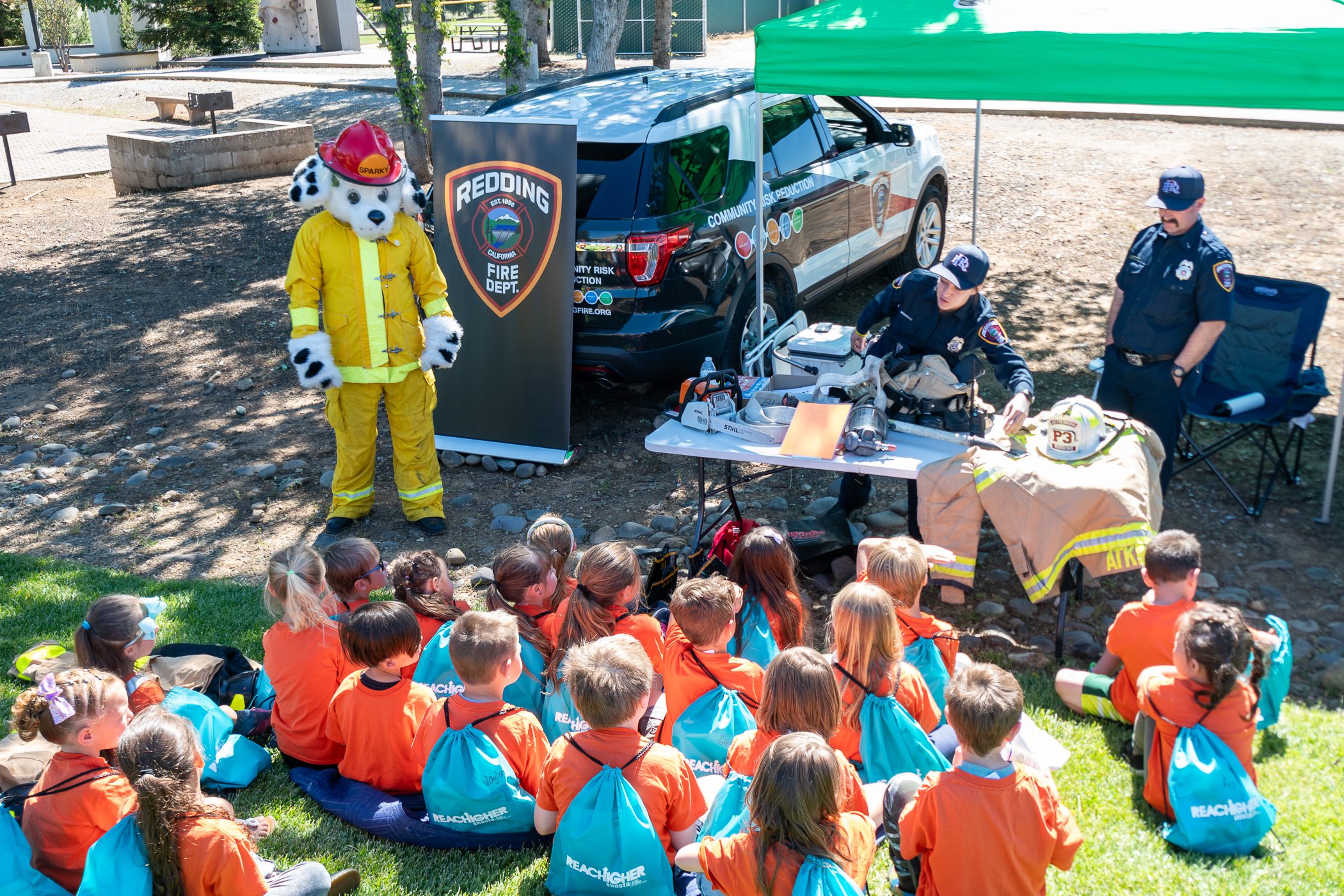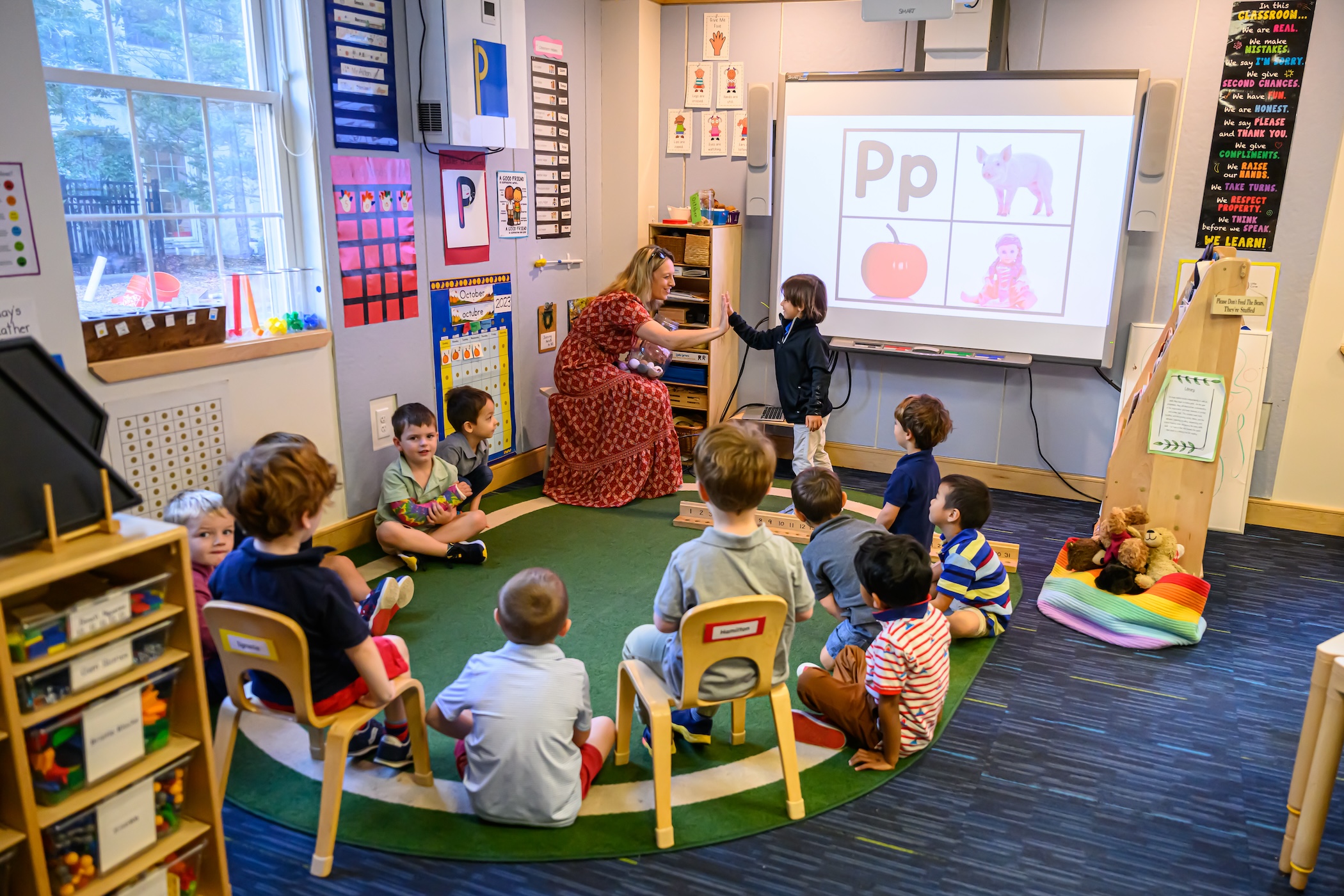Storytelling workshops that foster confidence in Grade School students
Wiki Article
Comprehending Quality School: Trick Truths and Exciting Tasks for Every Pupil
Elementary school acts as a vital structure for students, mixing academic understanding with the advancement of social skills. This duration is necessary for promoting emotional knowledge and strength. Engaging activities can boost inquisitiveness and inspiration, however the challenge exists in discovering the ideal equilibrium. As instructors and moms and dads navigate this landscape, recognizing the diverse nature of elementary school comes to be vital. What techniques can properly support pupils in this transformative phase?The Significance of Social Abilities in Grade Institution
Academic expertise is important, social skills play a crucial role in grade institution development. During these formative years, youngsters discover to interact with their peers, work out problems, and construct relationships. Social skills encompass a series of expertises, including effective communication, compassion, and team effort. These capacities enable pupils to navigate the intricacies of social dynamics within the classroom and past.As children take part in team activities and joint projects, they establish critical social abilities that add to their psychological intelligence. This foundational expertise fosters a sense of belonging and enhances overall well-being. Moreover, youngsters that possess strong social skills tend to experience better scholastic results, as they are most likely to get involved actively in conversations and look for assistance when needed.

Fundamentally, the farming of social skills throughout elementary school is not simply useful however essential for promoting a well-rounded individual gotten ready for future difficulties.
Stabilizing Academics and Creative Thinking
As trainees proceed with elementary school, balancing academics with imagination comes to be necessary to their total growth. This equilibrium cultivates important thinking, problem-solving, and innovation, abilities needed for future success. Academic subjects provide fundamental understanding, while creative tasks motivate students to express themselves and explore brand-new ideas.Incorporating creative thinking into the educational program can improve engagement and inspiration, permitting students to attach with the product on a deeper degree (Grade School). Projects that mix topics, such as art and science, can boost interest and promote a love for knowing
Innovative outlets like songs, drama, and aesthetic arts help pupils establish psychological intelligence and resilience. These experiences add to a well-rounded education, preparing trainees for a rapidly transforming world.
Inevitably, focusing on both academics and creativity gears up pupils with a diverse capability, allowing them to browse challenges and confiscate chances successfully throughout their educational journey and past.
Engaging Activities to Improve Learning
Countless engaging tasks can greatly improve finding out experiences for elementary school trainees. These tasks not just make discovering satisfying yet also help strengthen essential concepts. For circumstances, hands-on experiments in scientific research courses permit students to discover theories almost, fostering curiosity and much deeper understanding. Interactive narration sessions can improve proficiency abilities while sparking creativity and imagination.Group jobs encourage collaboration, teaching students the significance of teamwork and interaction. Including modern technology, such as digital quizzes and educational video games, can additionally captivate trainees' attention and make finding out more dynamic. Crafts and arts jobs can aid in the growth of fine electric motor abilities while offering an imaginative electrical outlet.
Additionally, exterior activities, like nature strolls or scavenger hunts, attach students with the environment and promote physical wellness. By integrating these interesting tasks right into the educational program, educators can produce a stimulating knowing atmosphere that accommodates varied knowing designs and maintains trainees motivated.
The Function of Parental Support in Education
Adult support plays a substantial function in the instructional trip of quality school trainees. Research suggests that when parents actively participate in their child's education, it positively impacts academic performance, inspiration, and overall well-being. Private School. Consistent participation, whether through research aid or participating in school events, fosters a sense of safety and security and enhances the worth of educationEfficient communication in between instructors and moms and dads enhances the discovering this page experience. Moms and dads who collaborate with educators can better comprehend their kid's challenges and strengths, enabling customized support. find out This partnership motivates accountability and sets high assumptions for students.
Furthermore, parental attitudes towards education significantly affect kids's viewpoints. When parents demonstrate a positive outlook on understanding, it grows curiosity and durability in their children. Ultimately, the structure of parental assistance is critical in forming pupils' mindsets, actions, and academic success throughout their grade school years.
Constructing a Positive Knowing Atmosphere
Creating a favorable understanding setting is important for fostering scholastic success and emotional health amongst elementary school trainees. Such an environment promotes interaction, encourages cooperation, and enhances inspiration. Teachers play a considerable role in establishing this ambience by applying strategies that prioritize inclusivity, support, and regard.Classroom administration techniques, such as clear assumptions and positive feedback, are very important in supporting a feeling of safety and security. Additionally, incorporating diverse teaching methods can satisfy various discovering designs, ensuring that all trainees feel valued.
Urging peer communications and team activities also cultivates social skills and a sense of community. Commemorating achievements, despite exactly how small, enhances positive habits and improves self-esteem.
Eventually, a positive understanding environment not only enhances academic efficiency however additionally cultivates emotional durability, helping students grow both inside and outside the classroom. This foundation is substantial for their general development and long-lasting knowing journey.
Methods for Creating Critical Believing Abilities
Effective techniques for creating critical believing abilities in elementary school consist of encouraging inquiry-based knowing and advertising analytic tasks. Inquiry-based learning promotes interest and permits pupils to explore concerns, while analytical tasks test them to apply their knowledge in functional scenarios. With each other, these approaches boost students' ability to believe critically and separately.Urging Inquiry-Based Understanding
Just how can teachers promote a classroom environment that advertises inquiry-based knowing? Educators can create an environment that urges interest by posturing flexible inquiries and promoting conversations that motivate students to explore numerous viewpoints. Motivating trainees to ask their own concerns can even more stimulate their important reasoning abilities. Incorporating real-world issues and hands-on tasks allows trainees to engage straight with the product, promoting deeper understanding. Furthermore, offering opportunities for joint jobs can improve peer-to-peer knowing, where students share insights and construct on each various other's ideas. By incorporating modern technology and resources that support expedition, teachers can help pupils take ownership of their learning trip, consequently cultivating a way of helpful site thinking of query that extends past the classroom.Promoting Problem-Solving Activities
While fostering analytic tasks in the classroom, educators can significantly enhance pupils' vital thinking skills. By incorporating hands-on tasks, seminar, and real-world situations, educators motivate pupils to examine situations, identify patterns, and discover multiple options. Involving students in joint challenges not just promotes synergy however likewise boosts their capability to express reasoning and warrant their choices. Furthermore, incorporating innovation via coding simulations or exercises can boost creative analytical approaches. Examining pupils' thought processes through reflective techniques enables for deeper understanding and improvement. On the whole, advertising analytical tasks cultivates an environment where critical thinking prospers, outfitting students with important abilities for future scholastic and life difficulties. These approaches ultimately prepare learners to navigate complex issues with self-confidence and technology.
Frequently Asked Concerns
What Age Do Children Commonly Start Elementary School?
Youngsters typically start elementary school at around age 6. This age can differ somewhat depending upon neighborhood educational policies and individual readiness, however six years old is the most typical beginning point for formal education.Exactly How Can I Assist My Kid With Homework?
To help with homework, parents can produce a structured setting, develop a regular, urge inquiries, give sources, and supply assistance without offering straight solutions, fostering freedom and crucial thinking in their child's learning process.What Prevail Elementary School Knowing Difficulties?
Typical elementary school learning challenges consist of troubles with reviewing comprehension, mathematics ideas, focus period, and social skills. These barriers can impact academic efficiency and need tailored assistance to assist trainees achieve their complete capacity.Exactly How Can Moms And Dads Interact Efficiently With Teachers?
Efficient communication in between parents and instructors can be attained with routine updates, open dialogues, set up conferences, and active listening. Constructing a collaborative partnership cultivates understanding and sustains the kid's educational trip positively.What Extracurricular Tasks Are Offered in Elementary School?
Quality institutions normally provide a selection of extracurricular activities, consisting of sports groups, music and art programs, dramatization clubs, and academic competitors. These activities improve social abilities, foster teamwork, and motivate creativity among trainees outside the classroom.
Grade college offers as an important foundation for pupils, mixing academic learning with the growth of social skills. Countless appealing activities can substantially improve learning experiences for quality institution pupils. Producing a favorable discovering environment is necessary for fostering scholastic success and psychological wellness amongst grade school trainees. Inquiry-based learning promotes inquisitiveness and enables pupils to explore concerns, while analytic activities test them to apply their understanding in functional situations. While promoting analytic activities in the classroom, instructors can considerably improve pupils' crucial reasoning abilities.
Report this wiki page